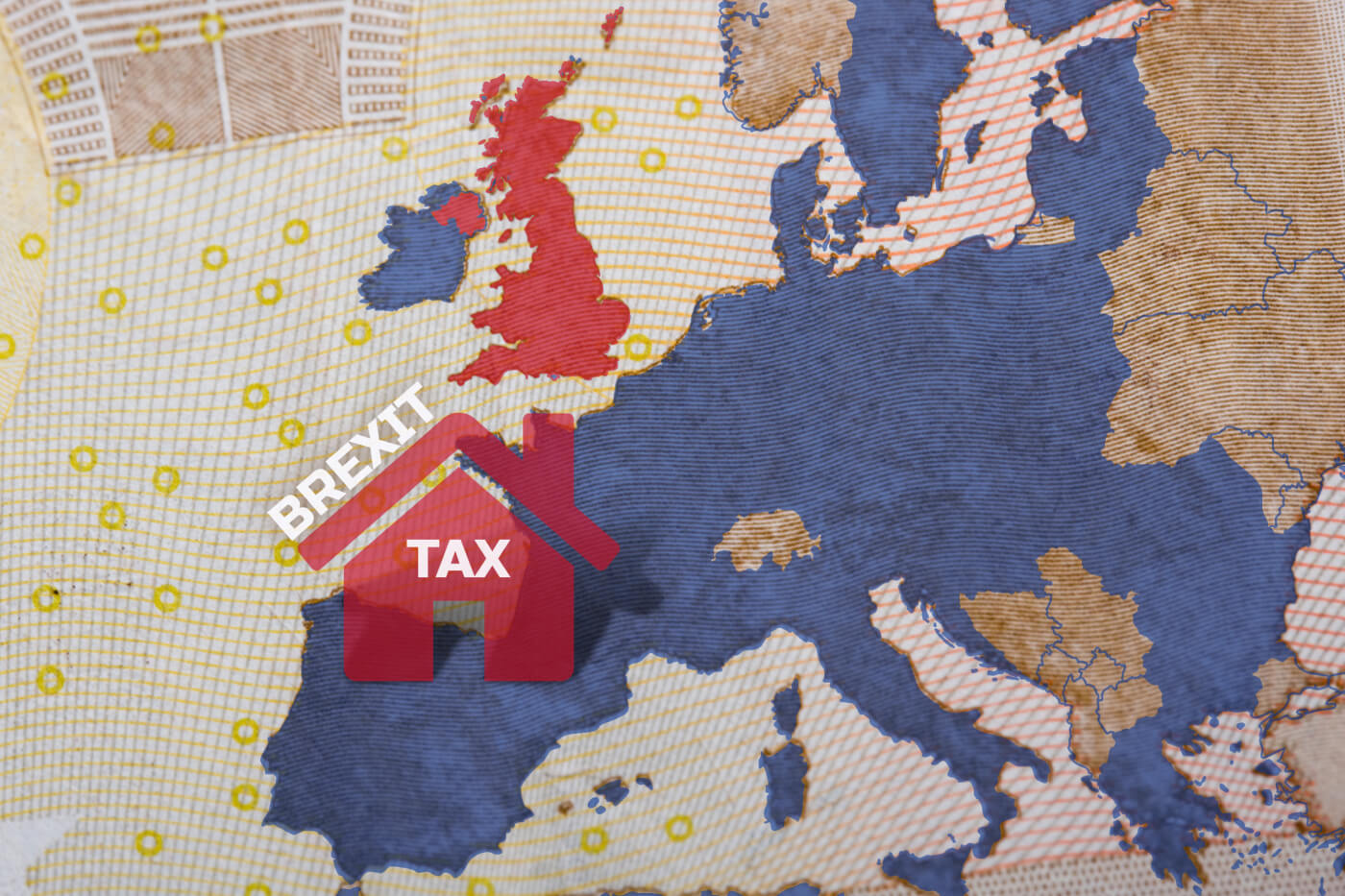Last Updated on November 29, 2024
British people with holiday homes abroad could face shockingly high tax bills, according to new claims.
Following the official departure of the United Kingdom from the EU on 31 December, many foreign homeowners were understandably anxious about how their property would be affected.
Not many people are aware of subtle changes around international property tax for UK residents.
With that in mind, we will explore the facts that non-resident homeowners should know.
Will Brexit affect buying property and living abroad?
This is seen as one of the biggest questions for UK citizens following Brexit.
Agreements are currently being made between the EU and the UK that will allow UK nationals that currently reside in EU countries to remain in the country for up to five years after 1 January 2021.
This is provided they register under a settlement scheme before this date.
However, throughout this five-year period, UK nationals will be permitted to spend 6 out of a 12-month period outside their country of residence.
The main reason it will be harder for UK nationals to relocate and buy property in an EU country is that they will no longer have freedom of movement, and will have to abide by the immigration laws of that country.

Will Brexit affect my rental taxes?
Spain
Fears for those owning property in Spain have been cemented by property expert Robert Pullen for Blick Rothenberg, who revealed that tax rates will rise for homeowners from 19% in 2020 to 24%.
He said, “In addition to the higher tax rate, the Spanish tax authorities will no longer permit any expenses to be deducted, meaning the gross income will be taxed”.
This will make it harder for homeowners to make a profit when renting out their homes in Spain.
? Learn how to be property tax-savvy during or contact PTI’ Returns’ accounting specialists in property for assistance.
France
British people intent on retiring in France or purchasing a second home in France, will not be affected majorly by Brexit. However, there are some changes to consider.
Obviously, British people no longer have freedom of movement in the EU, so will need to apply for a Long-Stay Visa Serving as Residency Permit when moving to France.
As well as this, if you are a resident in the UK, you will have to pay a 17.2% surcharge when selling your property, instead of 7.5%, which is the rate for EU member states.
Read more:
Property Tax in France: The Ultimate Guide for Non-Residents Owning Property
USA
Because the USA is not in Europe, there should be no major changes to consider for non-residents and their property.
Ireland
In general, a non-resident in Ireland is liable to pay tax only on income received from Irish sources or on capital gains received from the sale of an Irish asset.
This means that most non-residents will be subjected to the 20% standard rate of tax.
Poland
Before 31 December 2020, British citizens were not required to obtain a permit for the acquisition of real estate in Poland or shares of companies in Poland.
⚠️ This has now been reversed.
This permit is issued via an administrative decision by the minister for internal affairs, if there are no objections raised by the minister for national defence in Poland.
Even if you have a permanent residence document under EU rules, you (and your family members) have the right to request the brand new biometric residence card.
? Have you invested in buy-to-let property in Poland? Here’s everything you need to know about your real estate tax obligations.
Hungary
The Ministry of Finance in Hungary extended a “grace period” until 30 June 2021 regarding the real-time obligation to report certain “self-billing invoices.”
However, there are no differences in tax on rental income for UK nationals since Brexit.
? You might be interested in what is your personal income tax on rental gains in Hungary.
Does Brexit affect buy-to-let property investing?
First time buyers will more than likely be resisting the markets for a little while during these new times.
This could lead to rent prices increasing, as attention turns away from the buying market.
Of course, whether you are living in, visiting, or maintaining an overseas property in the EU, it will become slightly harder after the Brexit transition period.
This is especially due to the lack of Freedom of Movement. This limits non-EU members to stay in any EU country for a maximum of 90 days.
? This has led many non-resident landlords to think about their residency, with some even choosing to become foreign residents.
If you are considering investing in buy-to-let property, it is always worth keeping an eye on the market as well as factor in your residency.

Capital Gains tax
In France, an immediate practical implication is the requirement to appoint a French tax representative when selling a property.
Currently, the seller of French property who is domiciled in the European Union may use the same procedures as French residents.
⚠️Sellers who are a resident of a non-EU country are required to appoint a French tax representative based in France.
Since the representative must take full responsibility for the computation and filing of the gain, the seller of the property will be directed to a professional representation company that has received permanent accreditation from the tax authorities.
In Spain, those aged over 65, who have lived in Spanish property for at least three years, will still be able to claim the equivalent of a main residence relief. This relief provides full exemption from capital gains tax on a disposal.
For those under 65, the exemption from capital gains tax can only be claimed if they acquire a new home within the EU or EEA.
There are no changes to Capital Gains Tax in either Poland or Hungary.

Does my residency status matter?
Knowing your residency status is very important when filing international property tax returns.
In most European countries, non-residents are taxed only on their earnings from sources within the country.
This essentially means that if you are considered a non-resident, you will not have to pay on your worldwide income.
In general, in EU countries, you will be considered a non-resident if you spend less than 183 days a year within the country.
Property Tax International can help you figure out your residency status!
Are there changes to double taxation agreements after Brexit?
? Double taxation agreements are arrangements set up between two countries to help you pay a reduced rate of tax.
For example, if you are a UK resident with property in France, you can avail of double taxation agreements and claim tax relief.
The double tax agreement between the UK and France remains in place, even after Brexit.
So, if you receive foreign income, you will still only be taxed in your country of residence.
Similarly, Spain, Ireland, Poland, and Hungary’s double tax agreement remains in place with the UK.
Due to the fact that the UK and US’s double tax agreement is not based on the EU, their arrangement remains in place.
Who can help me with my property tax return?
Property Tax International’s trusted tax experts will provide quality, efficient, and reliable tax service – removing the hassle, uncertainty and time associated with arranging your tax affairs.
We are up to date with all tax changes regarding Brexit, meaning you can rest assured you will be tax compliant when filing an online property tax return.
We filed over 322,000 international property tax returns in 2019 alone in countries such as: France, Germany, Ireland, Hungary, Poland, Spain, The UK, and the USA.
Here are just some of the reasons why our clients choose Property Tax International (PTI Returns):
- Great value – we offer an expert and affordable service.
- One stop shop – need to file tax documents in more than one jurisdiction? You can do it all online with PTI Returns! This is one of the most unique things that sets us apart from most accounting services.
- Property tax specialists – We know international property tax! We guarantee to properly determine your residency status and apply every tax relief you’re entitled to.
- No language barrier – we speak our client’s language and communicate with the local tax authorities on their behalf, ensuring their forms are filed correctly.
- Local knowledge – we have offices scattered all over the world. This enables us to have substantial local knowledge in every country and help you to maximise your investment profit potential.
To find out more about your specific tax return, contact a member of the PTI Returns’ team today.
For regular Tax Tips and Deadline reminders follow us on Linkedin or Facebook.

